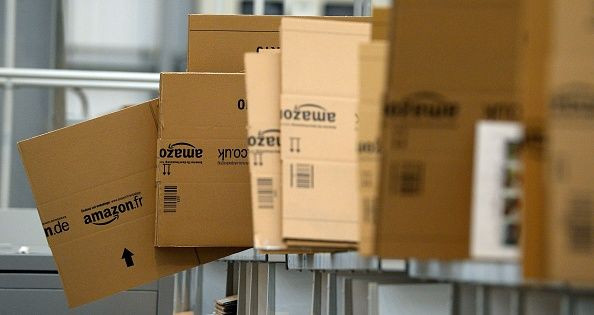Amazon's Prime Day Sales Could Top $5 Billion

With Amazon.com's (NASDAQ:AMZN) Prime Day sale just days away, the e-commerce provider is getting a lot of love from analysts, who are predicting that the company's annual customer loyalty sale will be the biggest shopping event in the company's history. If that's the case, it could also be a boon to shareholders.
This year, Prime Day will begin at midnight Pacific time on Monday, July 15, and run for two full days, up from 36 hours last year, and Amazon is promising more deals than ever before.
Let's look at some of the prognostications and why the event has become so important to Amazon.
$5 billion (with a "B")
J.P. Morgan analyst Doug Anmuth said Prime Day could result in more than $5 billion in sales for Amazon, a massive 56% increase from of the $3.2 billion he believes the company booked last year.
It's important to note that Amazon doesn't break out the results of Prime Day, and estimates vary widely about the total sales resulting from the event. In the wake of last year's Prime Day Sale, Internet Retailer conducted an analysis and concluded that the event generated sales of between $4.01 billion and $4.38 billion globally -- a difference of more than $1 billion from Anmuth's estimate.
Using Internet retailers' more conservative guess from last year, sales this year would increase between 14% and 25% -- a still significant increase for a sale of this magnitude.
It's also impressive considering the technical glitches Amazon experienced at the start of its 2018 sale. Shoppers were initially greeted with error messages because of the flood of customers trying to access the site.
Other bullish predictions
Camilla Yanushevsky of CFRA Research posits that the Prime Day sales will be the "biggest shopping event in Amazon's history, surpassing Black Friday, Cyber Monday, and the previous Prime Day."
By analyzing Web traffic data, Yanushevsky concluded that users are more engaged with Amazon's Alexa -- the voice-activated digital assistant that powers the company's Echo devices -- during the annual sale, and less likely to visit competitors' e-commerce sites. The analyst also predicts that Amazon's branded electronics -- including the Fire TV, Echo, Key, Cloud Cam, and Kindle lines -- will be among the best sellers.
Yanushevsky's not really going out on a limb with either of those prognostications. Amazon said sales of last year's Prime Day surpassed Cyber Monday, Black Friday, and the previous Prime Day -- sound familiar? The company also revealed that the best-sellers worldwide were the Fire TV Stick with Alexa Voice Remote and Echo Dot, and it was "the biggest event ever for Amazon devices." Seems the analyst is only predicting more of the same.
More than just sales
The importance of Amazon's annual Prime Day sale is about more than just growing revenue, though that's obviously the most visible aspect. The event also increases the roles of Prime subscribers, who spend $1,400, on average, per year, compared with just $600 for non-Prime customers. Each new Prime subscriber adds to Amazon's results for years to come.
The event also serves a number of other purposes, according to Anmuth, including testing the capabilities of Amazon's logistics and fulfillment centers ahead of the year-end holiday season. It also has the added benefit of selling more Amazon-branded electronic devices, which helps increase engagement, and drives more shoppers to Whole Foods Market.
You've got to hand it to Amazon CEO Jeff Bezos. The sale, which began as a "thank-you" to Prime members on the company's 20th anniversary, has become the largest sales event of the year for Amazon -- and a cause for celebration among its investors.0
This article originally appeared in the Motley Fool.
John Mackey, CEO of Whole Foods Market, an Amazon subsidiary, is a member of The Motley Fool's board of directors. Danny Vena owns shares of Amazon. The Motley Fool owns shares of and recommends Amazon. The Motley Fool has a disclosure policy.




















